第34章 Chapter 17 Other Laws of Nature(2)
7. AN ARBITRATOR therefore or judge is he that is trusted by the parties to any controversy, to determine the same by the declaration of his own judgment therein. Out of which followeth: first, that the judge ought not to be concerned in the controversy he endeth; for in that case he is party, and ought by the same reason to be judged by another; secondly, that he maketh no covenant with either of the parties, to pronounce sentence for the one, more than for the other. Nor doth he covenant so much, as that his sentence shall be just; for that were to make the parties judges of the sentence, whereby the controversy would remain still undecided. Nevertheless for the trust reposed in him, and for the equality which the law of nature requireth him to consider in the parties, he violateth that law, if for favour, or hatred to either party, he give other sentence than he thinketh right. And thirdly, that no man ought to make himself judge in any controversy between others, unless they consent and agree thereto.
8. It is also of the law of nature, That no man obtrude or press his advice or counsel to any man that declareth himself unwilling to hear the same. For seeing a man taketh counsel concerning what is good or hurt of himself only, and not of his counsellor; and that counsel is a voluntary action, and therefore tendeth also to the good of the counsellor: there may often be just cause to suspect the counsellor. And though there be none, yet seeing counsel unwilling heard is a needless offence to him that is not willing to hear it, and offences tend all to the breach of peace: it is therefore against the law of nature to obtrude it.
9. A man that shall see these laws of nature set down and inferred with so many words, and so much ado, may think there is yet much more difficulty and subtlety required to acknowledge and do according to the said laws in every sudden occasion, when a man hath but a little time to consider. And while we consider man in most passions, as of anger, ambition, covetousness, vain glory, and the like that tend to the excluding of natural equality, it is true; but without these passions, there is an easy rule to know upon a sudden, whether the action I be to do, be against the law of nature or not: and it is but this, That a man imagine himself in the place of the party with whom he hath to do, and reciprocally him in his; which is no more but a changing (as it were) of the scales. For every man's passion weigheth heavy in his own scale, but not in the scale of his neighbour. And this rule is very well known and expressed by this old dictate, Quod tibi fieri non vis, alteri ne feceris.
10. These laws of nature, the sum whereof consisteth in forbidding us to be our own judges, and our own carvers, and in commanding us to accommodate one another; in case they should be observed by some, and not by others, would make the observers but a prey to them that should neglect them; leaving the good, both without defence against the wicked, and also with a charge to assist them: which is against the scope of the said laws, that are made only for the protection and defence of them that keep them. Reason therefore, and the law of nature over and above all these particular laws, doth dictate this law in general, That those particular laws be so far observed, as they subject us not to any incommodity, that in our own judgments may arise, by the neglect thereof in those towards whom we observe them; and consequently requireth no more but the desire and constant intention to endeavour and be ready to observe them, unless there be cause to the contrary in other men's refusal to observe them towards us. The force therefore of the law of nature is not in foro externo, till there be security for men to obey it; but is always in foro interno, wherein the action of obedience being unsafe, the will and readiness to perform is taken for the performance.